Blog Articles
-
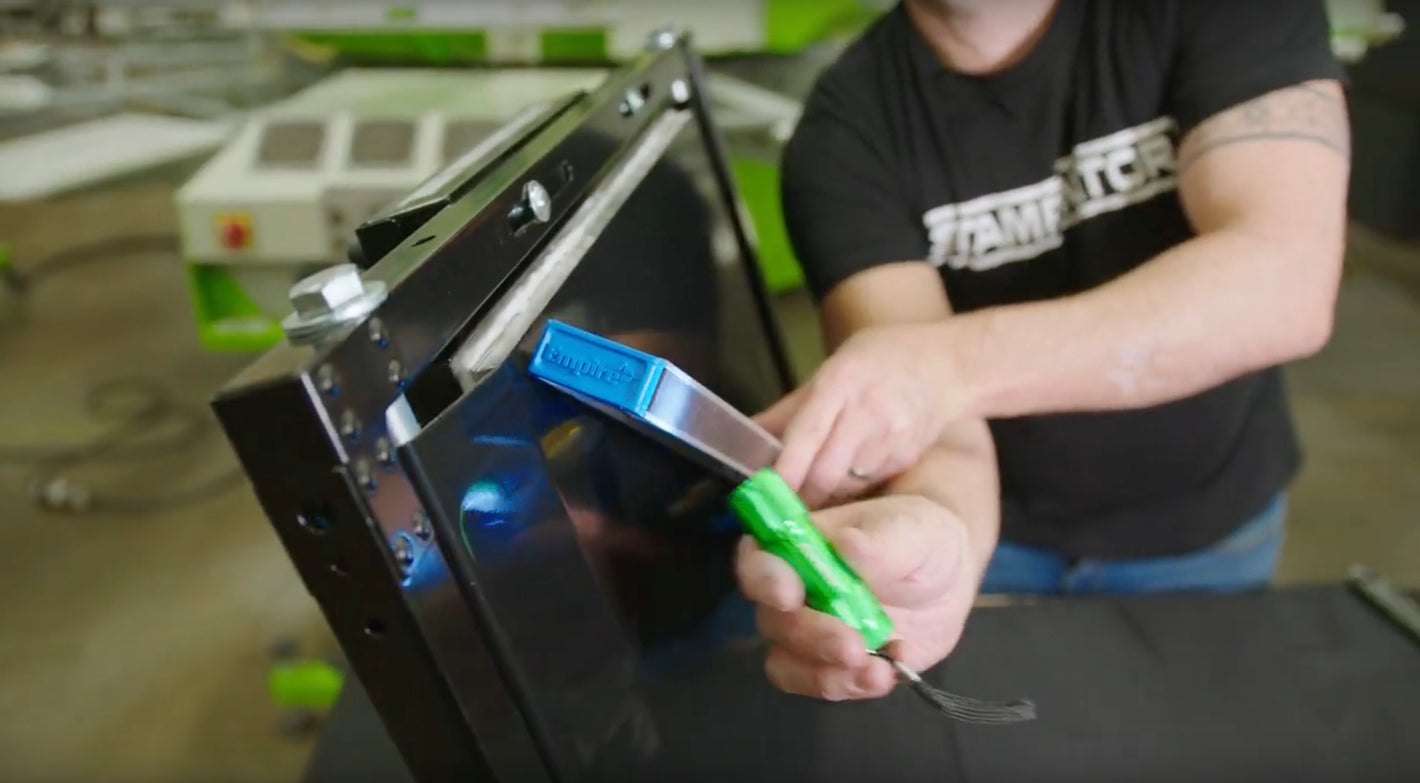
Stampinator Teflon and Heat Platen Calibration
View ArticleWhen it comes to achieving the best results with your Stampinator, proper calibration is key. Two important factors to consider are the Teflon and heat platen calibration. Let's dive into the details of how to calibrate these aspects for optimal performance.
-
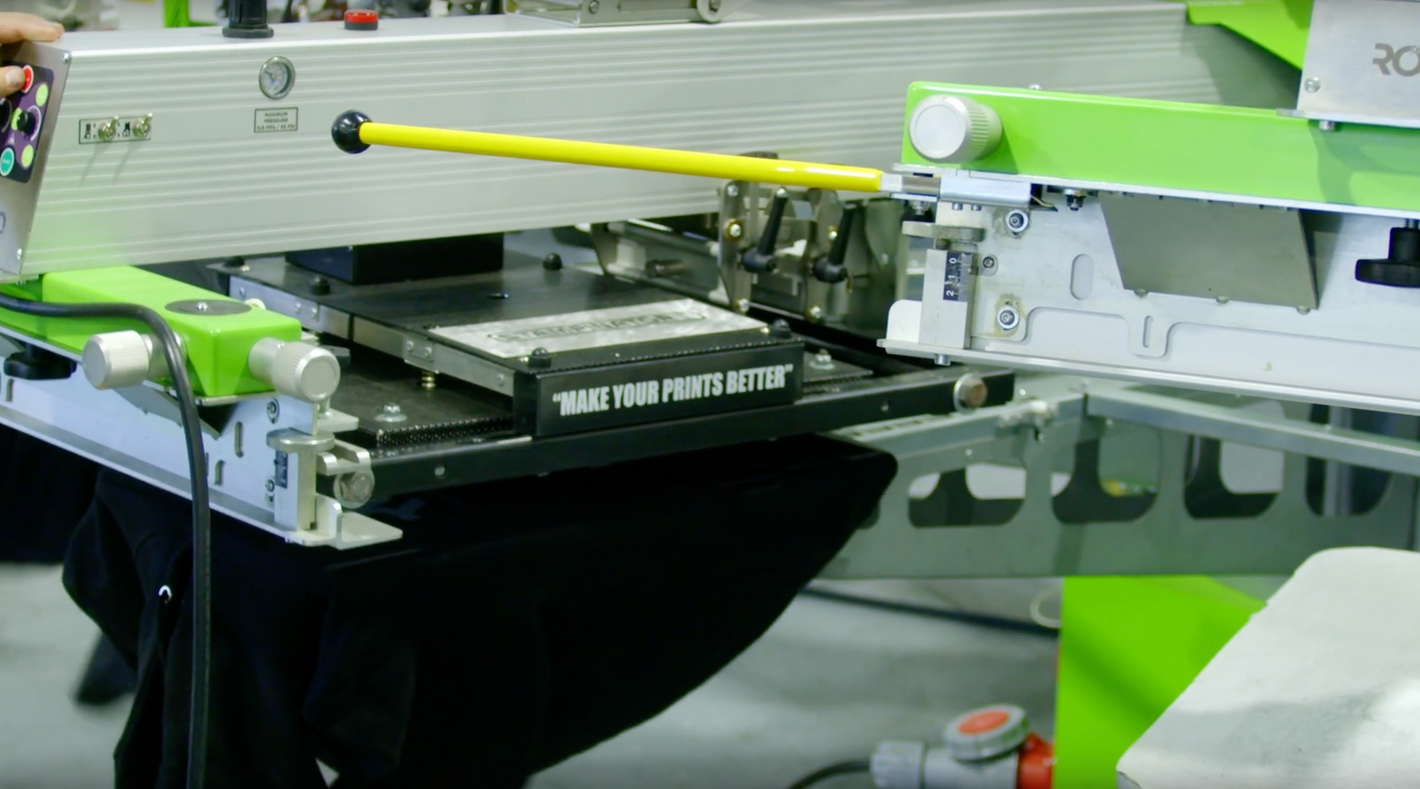
Why the Stampinator is More Cost Efficient Than a Flash and Conveyor Dryer
View ArticleThe Stampinator can replace a flash and conveyor dryer in your screen printing operation. It makes for a better final cure, and will make your prints better by making a smoother under base and eliminating fibrillation. But one of the biggest reasons you might want to switch to the Stampinator is that is is extremely cost efficient.
-

Why the Stampinator Produces Better Quality Prints
VIEW ARTICLEOne of the key reasons the Stampinator produces better quality prints is its direct heat application method. Unlike flash and conveyor dryers that use radiant heat from a distance, the Stampinator makes direct contact with the garment. This ensures even heat distribution across the entire print area, eliminating hot spots and cool areas that can lead to uneven curing. Consistent heat application means that every part of the print is cured uniformly, resulting in a smoother, more professional finish.
-

Why The Stampinator Flashes Better Than a Traditional Flash Dryer
VIEW ARTICLEOne of the primary reasons the Stampinator outperforms traditional flash dryers is its direct contact method. Traditional dryers use radiant heat from a distance, which can result in an uneven flash. Hot spots and cool areas are common issues that can affect the quality and consistency of the print. In contrast, the Stampinator applies heat directly to the garment, ensuring uniform heat distribution across the entire surface. This direct contact eliminates the variability inherent in radiant heat methods, leading to more consistent and reliable flashing.
-

How to Troubleshoot and Fix Wet Ink Sticking to Your Teflon
VIEW ARTICLEOne of the most common questions we get for the Stampinator is ink sticking to the Teflon. This happens for one of two reasons. Either your ink is over-cured, or under-cured. It can be difficult to assess which is happening, so here's some tips on how to figure this issue out.
-

Why the Stampinator Will Become the New Normal
View ArticleScreen printing has been around in various forms for ages. The process of "Silk Screen Stencil Printing" was modernized for popular use and patented in the early 1900's. The first dual rotary printing press was invented in the 1960's by Michael Vasilantone. The rotary press allowed screen printers to increase production exponentially and was a huge innovation.
-
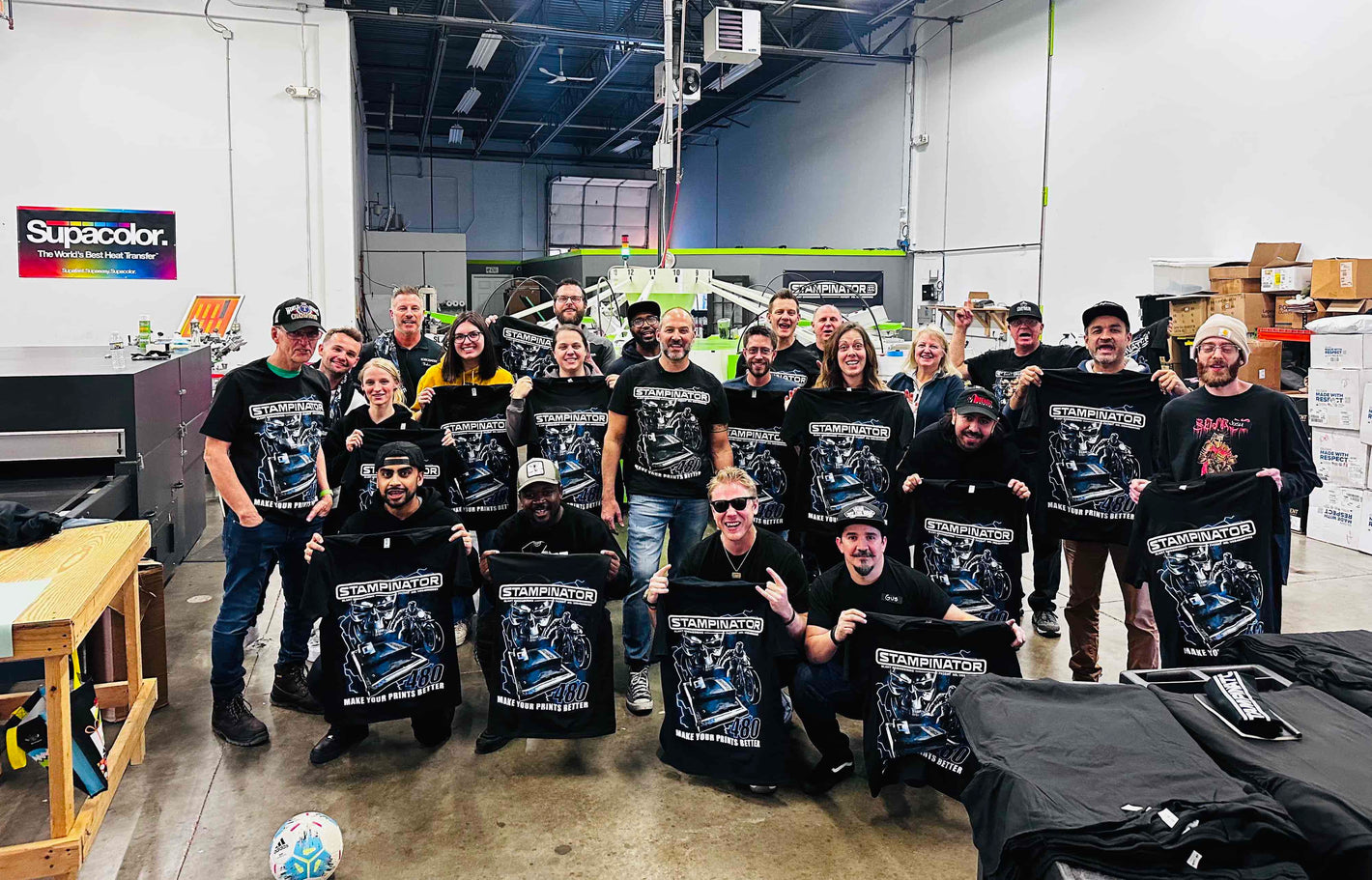
Stampinator Class In Review
View ArticleOn November 16th and 17th, 2023, we held our inaugural Stampinator Class at Slant Engineering outside of Baltimore Maryland. We had 22 students join us for this class from all over the country driving and flying in to the easily accessed Slant HQ which is located about 30 minutes out of BWI International Airport and surrounded by almost a dozen walkable hotels.
-

How to Print Fleece Hoodies Using the Stampinator
View ArticleWhen using the Stampinator on fleece, it is important for all the seams and the collar to hang off the sides in order to prevent press marks on the garment. Do not push the limits on your platen size before going down to a 10” or 12” platen on smaller sizes.
-
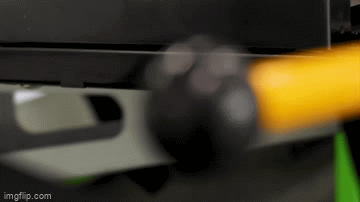
How the Stampinator Works Differently on Different Press Platforms
View ArticleThe Stampinator will work on a automatic press. How it connects and works will differ depending on press platform. There are three things to consider when choosing your Staminator configuration to properly work with your press.
-
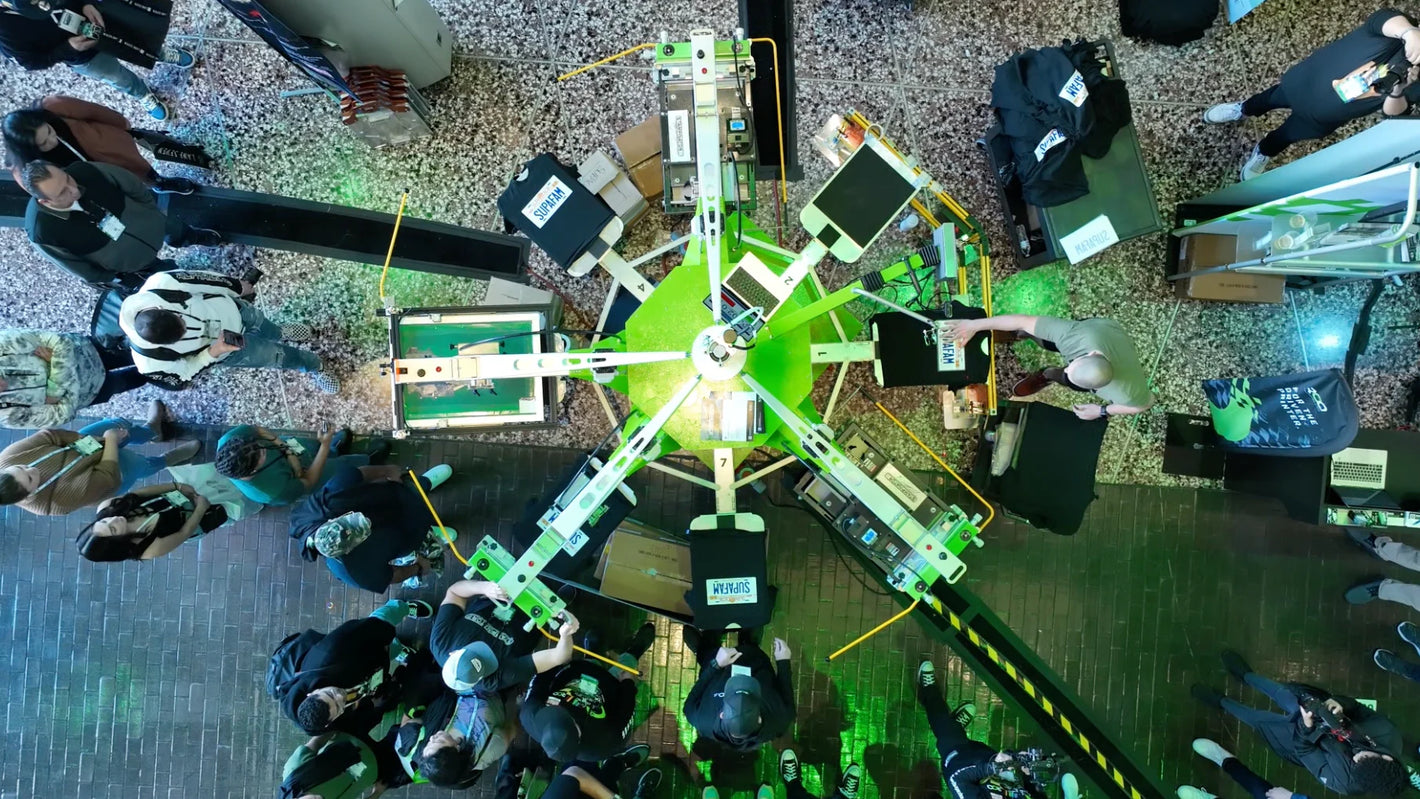
620 Transfers Per Hour, SupaStamp Competition Winner
View ArticleThe stage was set, the spectators gathered, and the final two contestants in the inaugural SupaStamp Grand Prix stepped up to the ROQ YOU Automatic Screen Printing Press to see who could "press" their luck the fastest and transfer 23 SupaColor Transfers on Allmade Organic Cotton Shirts.
-
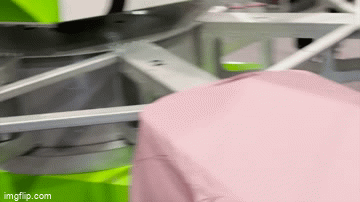
The Best Workflow for Stampinator and DTF Transfers
View ArticleThe Stampinator provides the ultimate workflow for DTF transfer application if you properly configure your press and arrange your workflow to accomplish it. Here are the 4 steps needed to maximize your DFT transfer application with the Stampinator on an automatic press. This can be accomplished with one or two operators depending on how fast you want to go.
-

Why the Stampinator is a Great Investment in a Down Economy
VIEW ARTICLEThe up's and down's of the global economy is something we all have to deal with. These days, current state of the economy depends on who you ask and we're not qualified to make predictions on where the economy is going. However, no matter what happens in the economy, the Stampinator has your back.
-

Live and Virtual Stampinator Demo's: How it Works
VIEW ARTICLEBy now, you have probably heard what the Stampinator does. But sometimes seeing is believing. We make extraordinary claims, but anyone can simply proclaim their product to be innovative. Extraordinary claims require extraordinary evidence.












